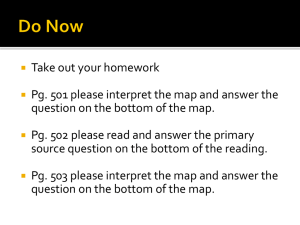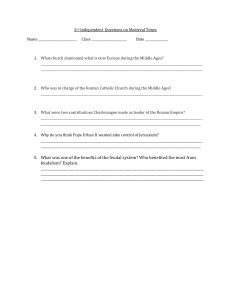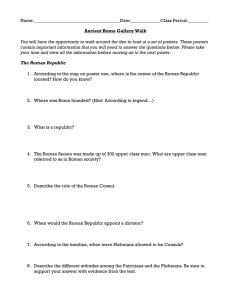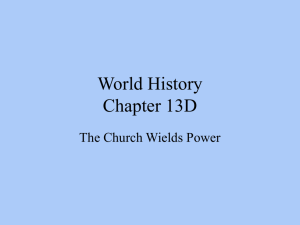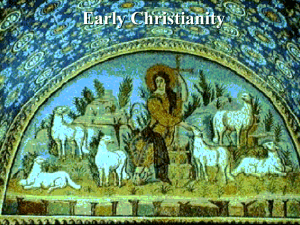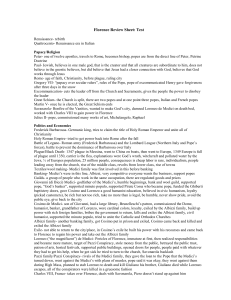Medieval Time Line
advertisement
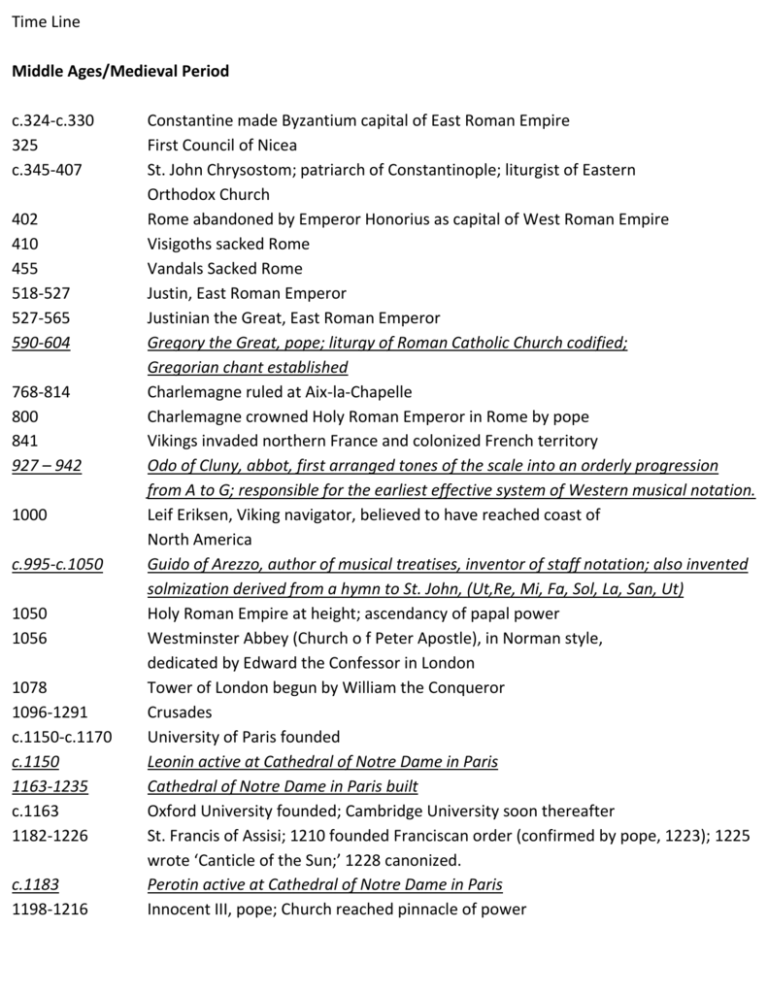
Time Line Middle Ages/Medieval Period c.324-c.330 325 c.345-407 402 410 455 518-527 527-565 590-604 768-814 800 841 927 – 942 1000 c.995-c.1050 1050 1056 1078 1096-1291 c.1150-c.1170 c.1150 1163-1235 c.1163 1182-1226 c.1183 1198-1216 Constantine made Byzantium capital of East Roman Empire First Council of Nicea St. John Chrysostom; patriarch of Constantinople; liturgist of Eastern Orthodox Church Rome abandoned by Emperor Honorius as capital of West Roman Empire Visigoths sacked Rome Vandals Sacked Rome Justin, East Roman Emperor Justinian the Great, East Roman Emperor Gregory the Great, pope; liturgy of Roman Catholic Church codified; Gregorian chant established Charlemagne ruled at Aix-la-Chapelle Charlemagne crowned Holy Roman Emperor in Rome by pope Vikings invaded northern France and colonized French territory Odo of Cluny, abbot, first arranged tones of the scale into an orderly progression from A to G; responsible for the earliest effective system of Western musical notation. Leif Eriksen, Viking navigator, believed to have reached coast of North America Guido of Arezzo, author of musical treatises, inventor of staff notation; also invented solmization derived from a hymn to St. John, (Ut,Re, Mi, Fa, Sol, La, San, Ut) Holy Roman Empire at height; ascendancy of papal power Westminster Abbey (Church o f Peter Apostle), in Norman style, dedicated by Edward the Confessor in London Tower of London begun by William the Conqueror Crusades University of Paris founded Leonin active at Cathedral of Notre Dame in Paris Cathedral of Notre Dame in Paris built Oxford University founded; Cambridge University soon thereafter St. Francis of Assisi; 1210 founded Franciscan order (confirmed by pope, 1223); 1225 wrote ‘Canticle of the Sun;’ 1228 canonized. Perotin active at Cathedral of Notre Dame in Paris Innocent III, pope; Church reached pinnacle of power 1215 c.1225-1274 c. 1300-1377 1309-1376 1314-1321 1337-1453 1348 After 1348 1378-1417 1387-1400 1421 1434 1436 1439-1442 1452-1519 c.1460-1521 1464-1469 1469-1492 1475-1564 1489 Magna Carta signed in England Thomas Aquinas (Philosopher) Guillaume de Machaut Popes resided at Avignon, France “Divine Comedy” written by Dante Alighieri Hundred Years’ War Black Death swept Europe killing up to 50% of the population Boccaccio’s “Decameron” Great Schism between two rival popes, each claiming authority Chaucer’s “Canterbury Tales” Giovanni de’ Medici elected magistrate of Florence, Italy Cosimo de’ Medici (1389-1464) began to rule Florence Cathedral dedicated (begun 1298; dome by Brunelleschi) Council of Florence brought nominal union of Eastern and Western Churches Leonardo da Vinci Josquin des Prez Piero de’ Medici ruled after Cosimo’s death Lorenzo de’ Medici ruled Michelangelo Buonarroti Michelangelo apprenticed to Ghirlandaio
